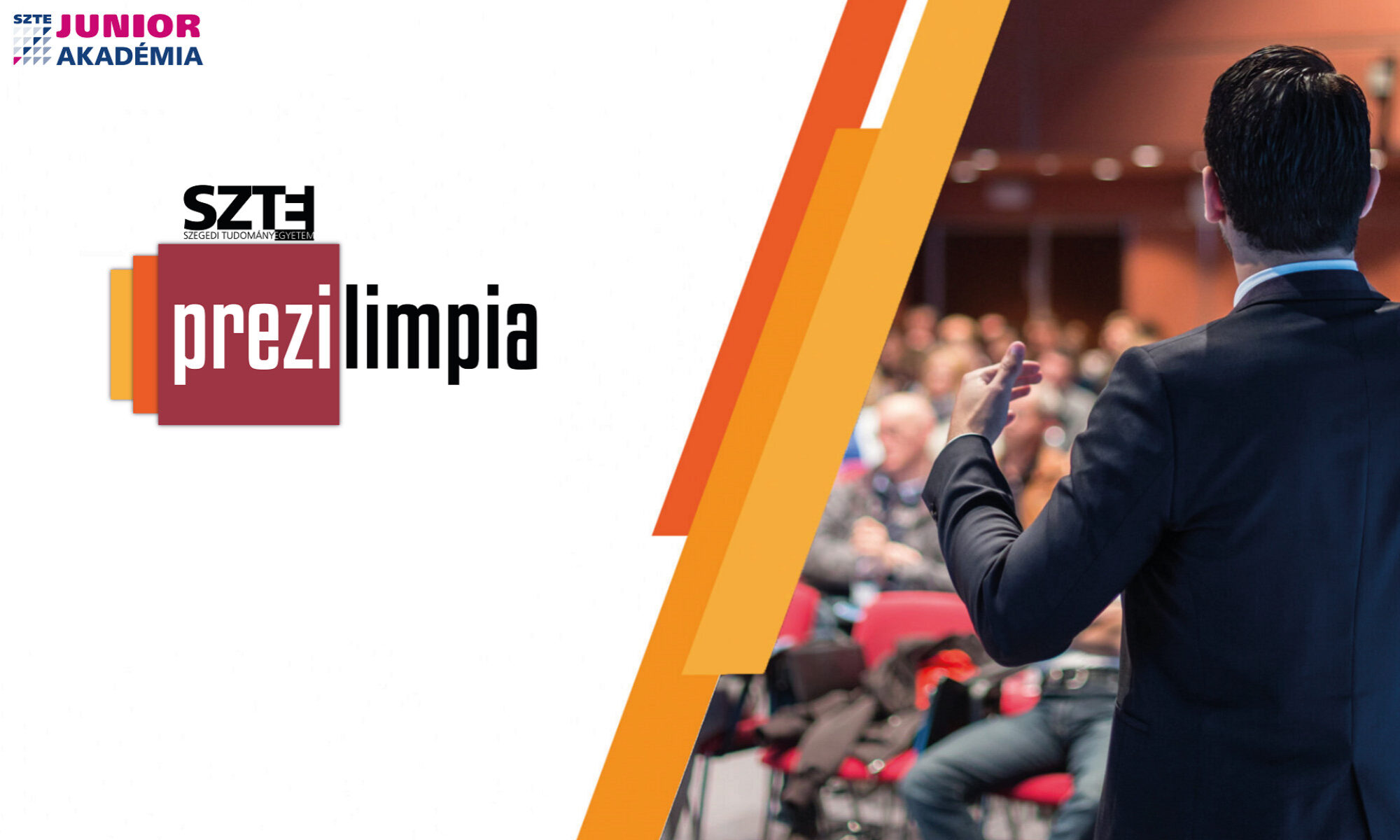The official results of the 2024 finals of the SZTE Prezilimpia:
The names of the winners:
1, Standard topic presentation – Schools – communities – values
I. place: Urr, Tímea Lilla SZTE MK
II. place: Kanonge, Mitonga Nur SZTE GTK
III. place: Nagy, Bence Gyula SZTE SZÁOK
2, Presentation karaoke
I. place: Nagy, Bence Gyula SZTE SZÁOK
II. place: Bogáthy, Edina University of Debrecen
III. place: Kanonge, Mitonga Nur SZTE GTK
Audience award winner: Kanonge, Mitonga Nur SZTE GTK
SZTE Talent Special Prize Winner: Anna Királykúti SZTE JGYPK
The following students successfully participated in the final:
Toldi, Ádám SZTE ÁJTK
Farkasinszki, Lehel Zoltán SZTE GYTK
Józó Viktor SZTE TTIK
Members of the jury
András Bárdos – president
Dr. Attila Badó
Norbert Simon
Prize (net amount)
1st Place: 200.000 HUF
2nd Place: 160.000 HUF
3rd Place: 120.000 HUF
Prizes for the Presentation Karaoke (net amount):
1st place: 45.000 HUF
2nd place: 35.000 HUF
3rd place: 25.000 HUF
Detailed competition rules can be read here.

Why is it worth it to participate?
This is a great opportunity to improve your presentation skills that you will surely be useful in all the different fields of your life. If you make it to the final round wither from the SZTE faculty rounds or from the online contest, you can try yourself live. In addition, you will also get a professional training with the help of a mentor, who will guide you to create a truly impressive speech, live.
The project is supported by the local Toastmasters club, a member of the Toastmasters International organization, one of the world’s biggest professional public speaking and leadership development organization, a network present in 141 countries with 14,600 clubs helping 352,000 members develop their leadership and public speaking skills.
Be among the best! This is an opportunity which lets you experience what it’s like to prepare for a competition in a truly professional environment.
Food for thought
“Schools – Communities – Values”
Learning, especially learning at school, is a social process. Whether we are preparing for our profession or career, deepening our previous knowledge, and moving with the times, we are never alone. We have teachers, fellow students, small or large groups with whom we share the experience of learning. What do we have in common? What is more effective? Should we walk the path alone or as part of a community?
Do today’s schools create a community of values? Do students necessarily develop the same knowledge, perspectives, and values together? Do they communicate these values to others?
Does belonging to a school mean anything today? Listening to a lecture together, working together in the lab or practicing together? Is it only our professional environment that involves a community, but not the study institution anymore? How much added value is there in a university community? What constitutes its values?
The cohesion of communities is undoubtedly changing. Schools and universities are looking for their place in this change. There are more questions than rational answers. And it is not even certain that we should look for a rational answer…
